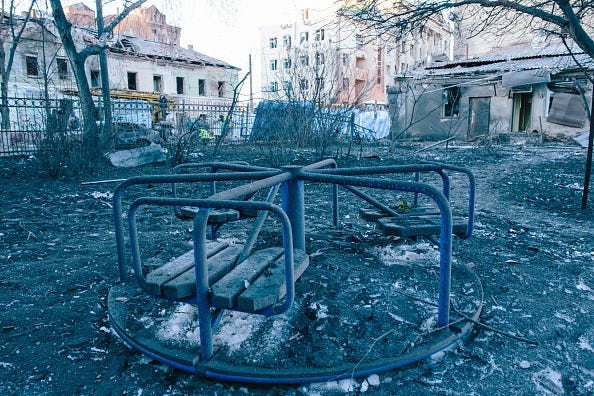Is there such a thing as an anti-war film?
We speak to Ukrainian war correspondent Illia Ponomarenko about how journalists experience and memorialize war, but how its depiction almost always ends up glorifying it.
“There’s no such thing as an anti-war film.”
-French filmmaker François Truffaut

Children, often boys, can be found in parks and playgrounds almost everywhere playing war.
That’s true even in Ukraine, on storied ground where war crimes have occurred.
"I see such kids even now, today, in Bucha,” said Illia Ponomarenko, the Ukrainian war correspondent who became a global name with his work at the Kyiv Independent. “There is a pack of young guys who dress like soldiers. Young kids, like seven, eight-ish years old. And they do play 'soldiers.'"
Ponomarenko lives in the suburb to the north of Kyiv, now known internationally as the site of Russian massacres in 2022. We are sitting in an underground bar, sipping on two beers, reflecting on two and a half years of war.
I told him my expectation: that almost as soon as the war ends, we will begin to lionize those who fought and participated – in stories, articles, music and films. The depiction of war, even in its ugliness, yields excitement and passion. And just as soon as the horror recedes, people – often young men – will wish they had been part of it.
This romanticization of battle raises a fundamental question about the nature of war, its inevitably romantic appeal, and how even ostensibly anti-war projects end up glorifying it due to its essential nature of sacrifice.
Today’s reporter’s notebook, news of the day, and dog of war is for paid subscribers only. Upgrade now to continue reading our in-depth conversation with Illia Ponomarenko!
Keep reading with a 7-day free trial
Subscribe to The Counteroffensive with Tim Mak to keep reading this post and get 7 days of free access to the full post archives.



